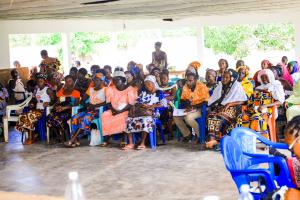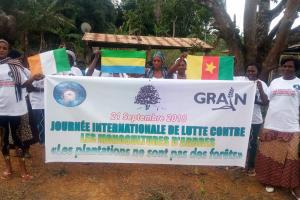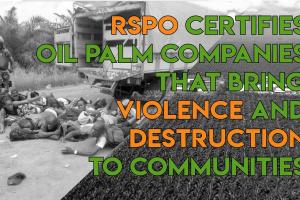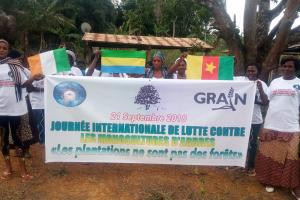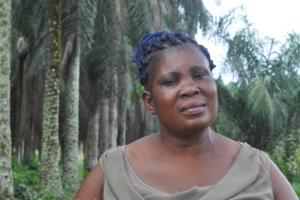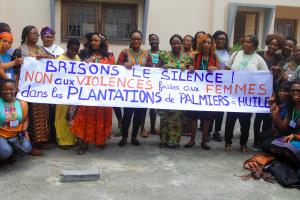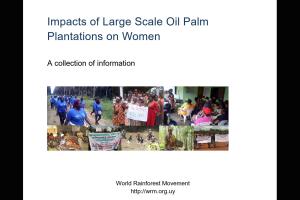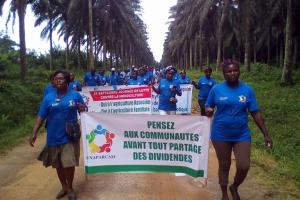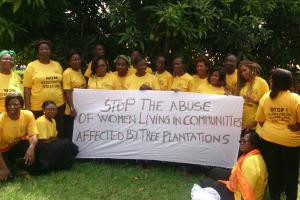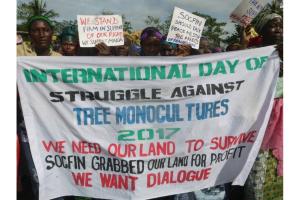Women and Tree Monocultures
Sexual violence and loss of access to land and water are specific impacts that women face when large-scale tree plantations take over community land. Once established, these industrial plantations interfere with food production and women's ability to move freely on their own land. That is why in many places affected by industrial tree plantations, women take the lead in organizing their communities and defending their territories.
Dekel Oil’s false promises lure villagers into dangerous oil palm growing contracts in Cote d’Ivoire
Land owners in Cote d'Ivoire are trapped in contracts with Dekel Oil, a company that made false promises arguing villagers would become rich by signing contracts to let oil palm monocultures on their land.
Women affected by OLAM’s oil palm plantations, during a meeting in the village of Fera, in Gabon, decided to send a letter to FAO denouncing the impacts they are suffering.
On November 12, with the endorsement of organizations from five continents, Friends of the Earth International and World Rainforest Movement publish an open statement denouncing the failure of the RSPO to eliminate the violence and destruction that oil palm plantations.
We invite organizations to sign on and support the statement, which denounces that the RSPO, since it was created 14 years ago, has been a tool that served the corporate interests of the oil palm sector
We said it in Mundemba, Cameroon, we reiterated it in Port Loko, Sierra Leone, we re-affirm this in Abidjan, Cote d’Ivoire: the abuse against women in and around industrial oil palm plantations must STOP!
A Collection of Articles Published in the WRM Bulletin on the issue of Resistance, Women and the Impacts of Plantations.
"12 Replies to 12 Lies about Oil Palm Monoculture Plantations" has been updated. The publication now includes a chapter about how oil palm companies lie when they say they respect women's rights.
